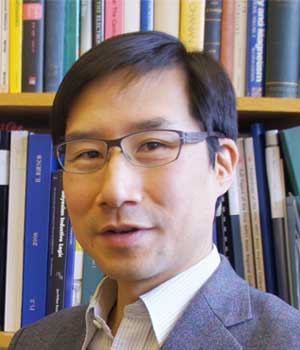SciSoc Spotlight Issue 28 – Professor Hasok Chang
28 Oct 2021. Professor Hasok Chang is with the Department of History and Philosophy of Science, University of Cambridge. A PDF version of this Issue is available here.
Which organisation and faculty are you currently attached to?
Department of History and Philosophy of Science, University of Cambridge
What is your sepcialisation?
History and philosophy of the physical sciences
A short summary of your current research topic
Currently I have two major projects. One is the early history of batteries, going back to Volta’s invention published in 1800. It was really easy to rig up batteries (Volta just used plates of two different types of metals, and pieces of paper soaked in salt water, piled up in alternating layers), but really difficult to understand how they worked. This is understandable given that these early scientists didn’t even have the concepts of electrons or ions as we know them, for about a hundred years after batteries were invented. Even today there are some intriguing questions remaining about these early batteries. My other project is more philosophical, trying to introduce pragmatism seriously into the philosophy of science. The general goal is to make sense of how it is that scientific knowledge grows, without pretending that we are approaching some absolute truth.
What made you decide to pursue research?
I have always wanted to study science because I loved learning about nature and wanted to understand everything. So research was a natural thing for me to go into. How I ended up with my particular field of work is more complicated. I started out wanting to become a theoretical physicist, but during my undergraduate study I realised that the reality of scientific training (problem sets and student practicals) didn’t excite me. I found that most of the questions that I wanted to pursue were considered “philosophical”, and luckily I discovered that there was a field called the philosophy of science.
One piece of advice…
Being able to have research as a career is a most wonderful privilege. Go into it only if you can find an area of work that you truly love, and enjoy every moment of it. Don’t become a researcher just because you are cleverer and better than others. The only other reason to devote yourself to research is to solve urgent practical problems facing humanity. But even then, you’ll find that you can’t keep up a life of research very well unless the problems you are tackling really fascinate you.
Trackback from your site.

